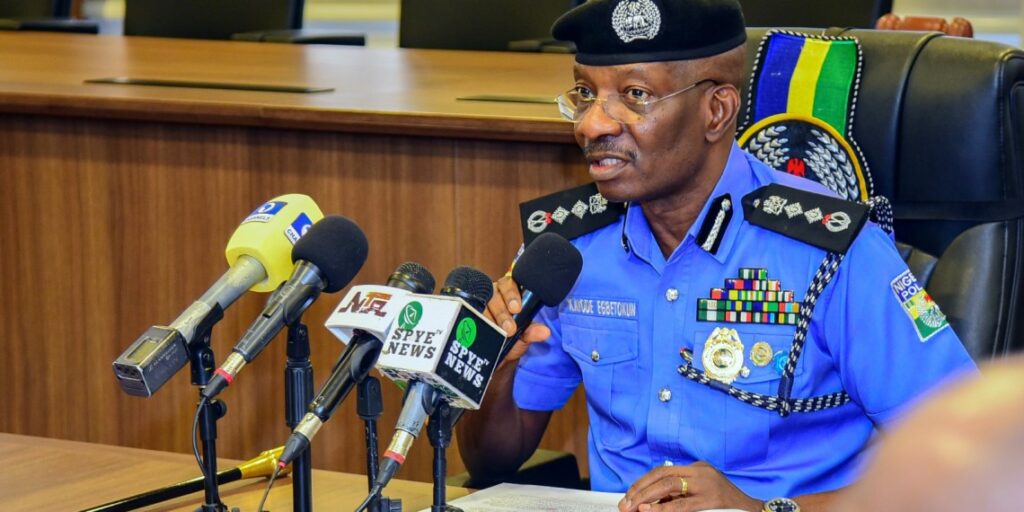
Nigeria’s Inspector General of Police, Kayode Egbetokun has directed that no form of protest must be allowed between August 1 and 10, 2024.
This comes amid plans by Nigerians to hold nationwide #EndBadGovernnaceInNigeria protests during the period.
The Nigerian government, through the Minister of Information, Mohammed Idris, had said that citizens have the right to protest but that it must be peaceful, as violent protests would be frowned upon.
This position is contrary to a memo from police commissioners to state criminal investigation departments and other police units, stating that no form of protest should be in states.
The leaked memo, first sighted by Sahara Reporters, noted that the directive came from the Inspector General of Police through the Department of Operations in Abuja.
It said that information received “reveals that some unidentified groups are mobilising for mass protest nationwide from 1st to 10th August 2024, find attached handbill for details of their movement.
“The INGENPOL (inspector general of police) directs that you be proactive X mobilise well kitted and equipped personnel yours X synergies with other sister agencies and the military X take over all strategic points in your AOR (Areas of Responsibility) x deploy undercover for intelligence gathering x disperse unlawful gathering x be in heart-to-heart conversation with community stakeholders x no form of protest must be allowed during the period.”
National police spokesman, Olumuyiwa Adejobi couldn’t be reached for comments.
Nigeria is facing its worst economic crisis in decades, with skyrocketing inflation, a national currency in free-fall and millions of people struggling to buy food. Only two years ago Africa’s biggest economy, Nigeria is projected to drop to fourth place this year.
The pain is widespread. Unions strike to protest salaries of around $20 a month. People die in stampedes, desperate for free sacks of rice. Hospitals are overrun with women wracked by spasms from calcium deficiencies.
The crisis is largely believed to be rooted in two major changes implemented by a president elected 14 months ago: the partial removal of fuel subsidies and the floating of the currency, which together have caused major price rises.
A nation of entrepreneurs, Nigeria’s more than 200 million citizens are skilled at managing in tough circumstances, without the services states usually provide. They generate their own electricity and source their own water. They take up arms and defend their communities when the armed forces cannot. They negotiate with armed kidnappers when family members are abducted.
But right now, their resourcefulness is being stretched to the limit.
Some folks are planning protests to voice their concerns about the economic situation, including rising inflation and poverty, under President Tinubu’s administration.
The protests are expected to happen in the north and other parts of the country, but residents and leaders of the south-eastern region, inhabited by the Igbo ethnic group – have made it clear that they are not going to be part of the mass action.
KOIKI Media bringing the world 🌎 closer to your door step
